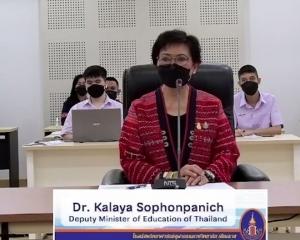
The review is a joint programme between the Ministry of Education and the New Zealand Qualifications Authority, which aims to align the standards to the new curriculum.
It will also address issues of duplication, credit parity, consistency, fairness and coherence - one of the series of improvements to NCEA announced in May 2007.
Otago-Southland Principals Association chairman and John McGlashan College principal Mike Corkery welcomed the review, saying there had been "a certain amount" of unease within schools and the community about the lack of coherence between unit and achievement standards.
"It's a big ask to address all of those things but it's worth having a crack at. It will improve people's confidence in the system if it is seen to be agenda-free and not capable of manipulation.
"The review can only be good for all concerned," he said.
By contrast, National MP Katherine Rich was scathing about the review.
She said one of the problems with the NCEA was that it was implemented too quickly, and the Government had been "dragged kicking and screaming" to fix the issues.
"Clearly, it's election year. The Government knew of these NCEA concerns two years ago, ignoring concerns raised by schools and the Opposition. Five months from an election, the minister finally admits there is a problem.
"Not enough work was done before NCEA was launched in schools.
This is why we are seeing such a significant series of improvements and changes," she said.
To date, improvements made to the system included endorsement of NCEA certificates, the appointment of full-time moderators to increase confidence in internal assessment, random sampling of internal assessment for moderation, comparison of internal and external assessment results, and the introduction of exemplars.
NZQA deputy chief executive (qualifications) Bali Haque said the review would be conducted by panels of subject experts, formed from subject associations.
Principles developed by an expert group of representatives from the education sector would be used.
Mr Haque said the six principles meant the standards must be derived from a curriculum or established body of knowledge, have a clear purpose, allow valid and reliable assessment, have credit parity (with other standards), should not duplicate one another and, where more than one credit-bearing grade is available, grade distinctions must be based on qualitative differences in achievement.
The review would also consider the conditions under which assessment is carried out, he said.
Reviewed standards would be assessed by the NZQA's technical overview group of university professors, which includes University of Otago College of Education educational assessment research unit co-director Prof Terry Crooks.
Mr Haque said the review would be completed by 2010, and it would take place alongside the implementation of the new curriculum.
"We have a rare opportunity to align the curriculum development process with the assessment development process.
We haven't had that opportunity before."











